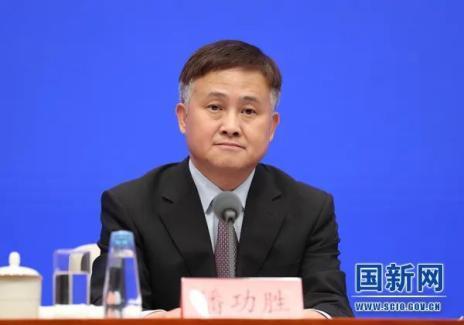China appoints Harvard and Cambridge-trained officials as central bank chief
China appoints Harvard and Cambridge-trained officials as central bank chief
Posted July. 04, 2023 07:56,
Updated July. 04, 2023 07:56

In a key reshuffle at the pinnacle of China's central banking hierarchy, Pan Gongsheng, the current Deputy Governor of the People's Bank of China (PBOC), has been named as the communist party chief of the central bank. This appointment positions Pan as a prime candidate to succeed Yi Gang as the Governor of the People's Bank of China.
In reports surfacing Sunday, both Caixin and other Chinese economic outlets confirmed the dual departures of Guo Shuqing, the previous secretary, and governor Yi Gang from the PBOC's Party Committee. These departures came in the wake of Secretary Pan's appointment. The South China Morning Post (SCMP) shed light on the context, stating, " Pan is expected to take Yi’s place as governor, as appointments of party posts usually precede government positions.”
Pan Gongsheng earned his Ph.D. in Economics from the Renmin University of China, followed by postdoctoral research at the University of Cambridge in the UK. A stint as a senior research fellow at Harvard University's Kennedy School in the U.S. further honed his expertise. Pan also served as a research specialist at Standard Chartered Bank in the U.K. His Chinese banking career includes roles at the Industrial and Commerce Bank of China and Agricultural Bank of China, leading up to his ongoing tenure as the Deputy Governor of the PBOC since 2012. He has held the position of director of the State Administration of Foreign Exchange since late 2015.
The timing of this significant personnel shift is drawing attention, falling just before U.S. Treasury Secretary Janet Yellen's planned visit to China from Thursday to Sunday. Bloomberg News speculated that Pan, as the potential new PBOC chief, may well find himself in discussions with Secretary Yellen, particularly as challenges like the dramatic depreciation of the yuan and the growing outflow of foreign capital continue to intensify China's economic pressures.
Ki-Yong Kim kky@donga.com
Headline News
- Joint investigation headquarters asks Yoon to appear at the investigation office
- KDIC colonel: Cable ties and hoods to control NEC staff were prepared
- Results of real estate development diverged by accessibility to Gangnam
- New budget proposal reflecting Trump’s demand rejected
- Son Heung-min scores winning corner kick







